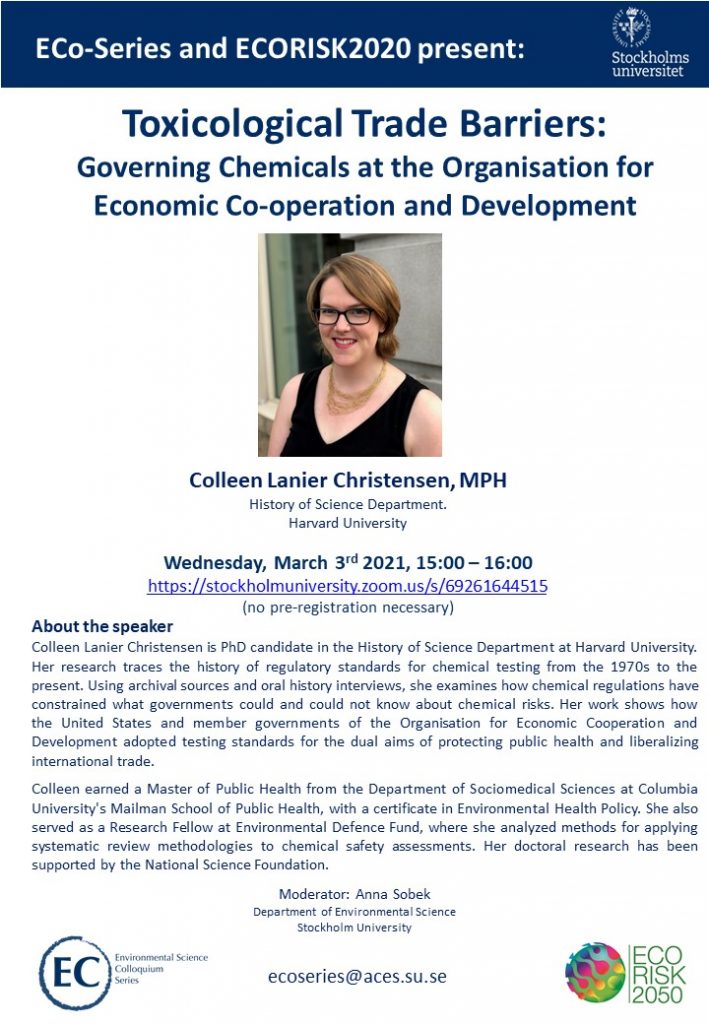ECo-Series and ECORISK2050 host a free online colloquium on “Toxicological Trade Barriers: Governing Chemicals at the Organisation for Economic Co-operation and Development” with Colleen Lanier Christensen (Harvard University) on March 3, 2021, 3-4 PM CET.
The postwar expansion of the chemical industry and liberalization of international trade resulted in an unprecedented proliferation of chemical products. As the unanticipated global health and environmental impacts of these products became increasingly apparent in the 1970s, governments around the world sought to establish new controls as well as means to coordinate their regulatory approaches.
Major international organizations including the United Nations, World Health Organization, and even the North Atlantic Treaty Organization took up the environment as part of their missions. Yet in the field of toxic chemicals, the organization that came to the forefront was an economic one: the Organisation for Economic Co-operation and Development (OECD), an organization devoted to economic growth and composed of 24 industrialized countries. By 1980, the OECD became the major venue where nations convened to harmonize chemical policies and set common standards for evaluating health and environmental risks.
This talk traces the history of the OECD Chemicals Programme, examining how responses to the threat of toxic chemicals and the imperative of economic growth became intertwined. I argue that, in becoming an arbiter of chemical regulation, toxicological knowledge, and scientific practice, the OECD established regulatory frameworks that prioritized economic and bureaucratic over epistemic concerns. OECD nations regulated toxicological practice to control market behavior, which constrained the type of testing done and knowledge produced.
More information and the link to the Zoom meeting can be found here.

